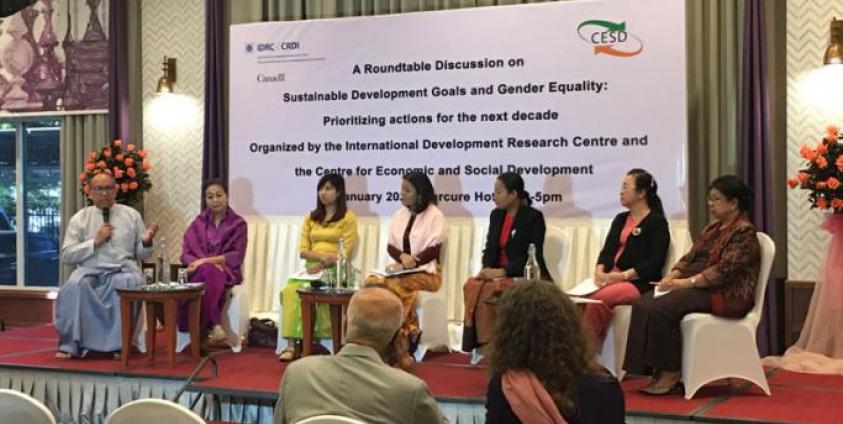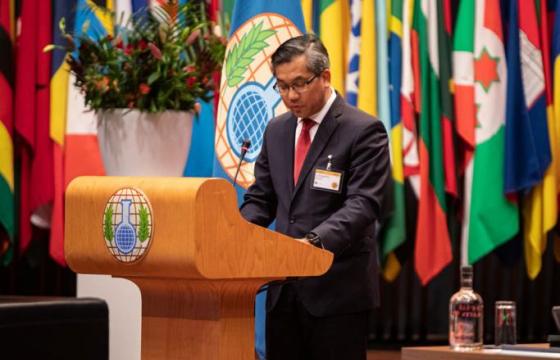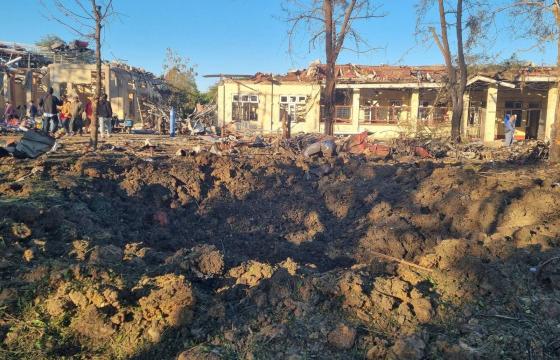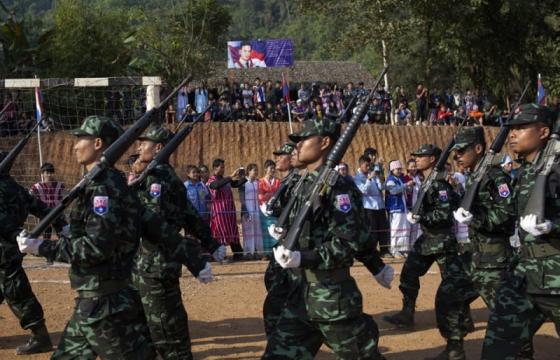The urgency and the concerted effort to bridge gender gaps in Myanmar society and contextualization of indicators was exhorted at a policy roundtable “SDGs and Gender Equality: Prioritizing action for the next decade” organized jointly by the Centre for Economic and Social Development (CESD) and International Development Research Centre (IDRC) Canada, in Yangon this week.
As part of knowledge for Democracy initiative, this policy round table has brought together researchers and practitioners, taking stock of the existing research evidence vis-a-vis gender gaps at global, south Asian region and Myanmar levels and ways to address the same.
Presenting a broader overview, gender expert, Prof. Debapriya Bhattacharya of Centre for Policy Dialogue (CPD) Dhaka emphasized the paramount need for State (government) intervention in promoting women’s rights in terms of justice, politics and service delivery. While markets have a role in terms of economic empowerment, labour and credit supply – they need government’s policy in terms of a supporting environment. Finally, at the micro-level, society has an important role in terms of altering attitudes and behaviour (of men and women) that can promote women’s rights and gender equality.
Global progress card on SDG – social development goals - vis a vis gender equality points to mixed progress. Evidence points out that women’s political representation at the micro-level appears to be far more effective in changing gender relationships than at higher levels. Addressing issues like child marriage, violence against women, at the local level by public representatives at the local level is found to be effective in South Asian countries like India and Bangladesh. Another important insight from the global evidence is the absence of a relationship between per capita income and gender gap index. Evidence points out that achievements in the arena of gender equality need not follow a rise in per capita income, rather countries can achieve gender equality even when they are at a low per capita income level. This is significant as Myanmar can aspire and achieve gender equality through effective public policies that work for women. Globally the education gender gap is improving, health is also improving however transformative gender indicators like attitudes and behaviour are yet to see improvements, which would mean more work at the societal level. A priority focus for the coming years would be to acknowledge and account women’s unpaid care work; addressing violence against women and addressing issues from the perspective of disaggregated way, accommodating diverse intersectionality related to women’s disadvantages. For Myanmar, more data and evidence is needed to understand the situation and devise policies and programmes. MSDP is one such route. At a practical level, the need for disaggregated data, monitoring gender-focused indicators, gender budget and allocative priorities and gender-sensitive results framework are to be practised by Myanmar in order to reach SDG goals.
Daw Ngu Wah Win presented findings of the recent research conducted by CESD, which was based on a labour force survey, SME survey and education survey. It points out that labour force participation is improving in central regions of Myanmar while states and remote regions such as Tanintharyi are lagging behind. Gender division of labour and traditional roles for women constrain labour market opportunities for women. Typically, female labour is more in numbers in sectors like education, health and social services, garments and financial sectors while male labour is more in transport, fisheries and construction sectors. There seems to be a gender balance in terms of employment in agriculture, manufacturing and food processing sectors. More importantly, the study points out a gender wage gap exists in both urban and rural labour markets, but it is more pronounced in rural labour markets. While in urban areas average daily wage for a male is 4658 Kyats, the same for a female worker is 3889 Kyats. In rural areas, men earn on an average 3827 Kyats, while women earn 2990 Kyats. Similar levels of wage disparity can be seen throughout the country, across all states and regions. It can also be seen across all sectors of employment. While there is a popular perception that women’ entrepreneurship is seen favourably in Myanmar in terms of their overwhelming presence in urban informal trading activities, evidence points out the there are fewer women at the top management levels of firms of all sizes and all industrial sectors. This situation is available, in spite of the fact that over 70% of graduates and post-graduates of Yangon University are women.
The evidence marshalled by CESD on the glass ceiling in the education sector provides a compelling case for deliberative public policies that would remove constraints for women to move upward, to decision-making levels, in the education sector. While 90% of teachers in basic education level are women, over 39% of all headmasters of basic education schools are men. All nine director generals of the ministry of education are men. Over 80% of faculty members of higher education institutions are women, while men occupy overwhelmingly at decision making positions. There could perhaps be various reasons including deep-seated attitudes, gender norms, and practical difficulties for women to move upward in the ladder of professional growth. Another set of data presented was from the World Economic Forum (WEF). Its gender gap rank shows that Myanmar has fallen back in 2020 compared to 2017. Myanmar women have fallen behind in terms of economic participation and opportunity suggesting that women workers and entrepreneurs faced great challenges in terms of work participation and running businesses over the past few years. Lower participation in terms of women leaders as ministers is also found over the past three years, though there is an increase in the number of women parliament members. Further, women’s issues appear to form a lower priority compared to other priorities of the country.
Following these presentations, a lively panel discussion moderated by Dr Zaw Oo of CESD with stakeholders viz., researchers, activists and private sector representatives identified the challenges of achieving gender equality in different sectors and how the government can support the agenda. The panellists included Daw Pansy Tun Thein from GEN, Daw Thawdar Aye Lei from EmRef, Daw May Nyo Lwin from MWEA, Dr Rebecca Htin from Karen Humanitarian Network, Daw Phyo Sandar Soe from CTUM and Dr Yin Yin Nwe, former UNICEF country representative to China.
The issues brought out by the panellists included the need for capacity building of women in terms of leadership, skills and capacities for participation in political and economic fronts. Traditional beliefs need to be changed which require significant work with men, women, boys and girls to see gender roles and gender division of labour, from a new perspective. Issues like peace and security can be achieved through greater women’s participation which is currently limited to addressing local level issues of conflict management as most often men remain outside villages in conflict situations. Decision-making roles remain with men. Gender inequality can be seen at the institutional level at workplaces, employers associations and trade unions as well. Women entrepreneurs and leaders face several difficulties due to care responsibilities. Gender norms also prevail in political parties and women’s participation remains limited due to attitudes of the leadership. The unfinished agenda of gender equality needs a concerted effort by all stakeholders and anchoring programmes and policies around SDGs is identified as an approach to be followed by Myanmar. Identification of indicators, localisation and contextualization of goals, gender-based budgeting and monitoring are some of the practical solutions identified by the panellists in order to realize gender goals of SDGs.






